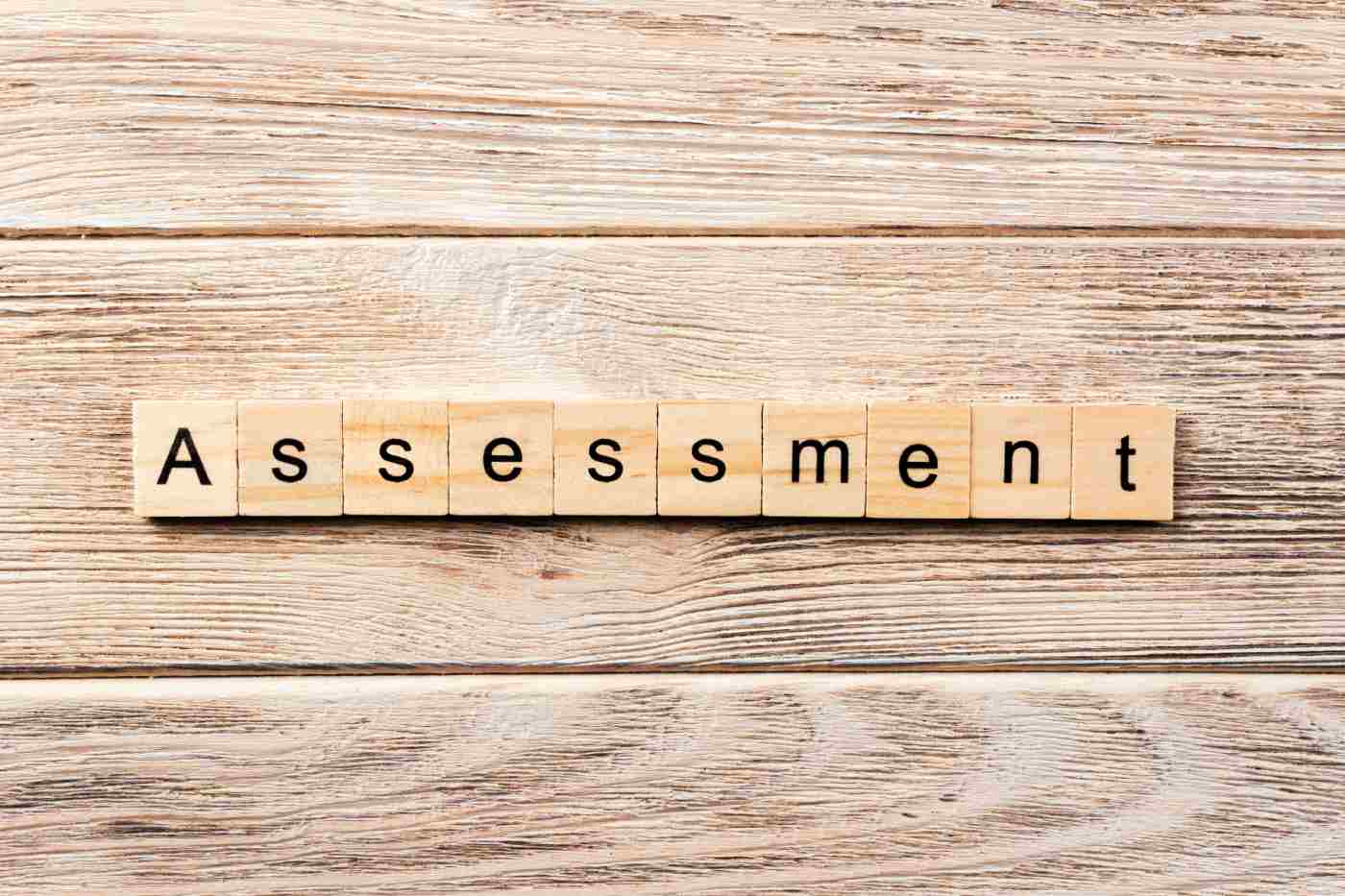How Psychological Assessments Support Personalized Treatment Plans

Imagine having a detailed blueprint of your mind – one that reveals not only your challenges but also your hidden strengths and untapped potential. Psychological assessments offer exactly this kind of comprehensive insight, serving as powerful tools that can transform how you understand yourself and guide you toward more effective mental health care and personal growth.
Understanding the Purpose of Psychological Assessments
Far from being simple tests with right or wrong answers, psychological assessments are sophisticated diagnostic tools designed to unlock the mysteries of human behavior and cognition. These comprehensive evaluations serve multiple purposes that extend far beyond identifying mental health conditions.
How are psychosocial assessments used in psychological treatment? At their core, psychological assessments aim to create a complete picture of how your mind works. They examine the intricate connections between your thoughts, emotions, behaviors, and cognitive abilities to identify patterns that might not be immediately obvious to you or even experienced mental health professionals. This holistic approach ensures that nothing important gets overlooked in your mental health journey.
1. Diagnostic Clarity and Accuracy
Why are psychological assessments important in diagnosis? One of the primary purposes is to provide accurate diagnoses when mental health symptoms are complex or unclear. Many conditions share similar symptoms, making it challenging to distinguish between them without thorough evaluation. For instance, difficulty concentrating could indicate ADHD, depression, anxiety, or even a learning disability. Assessments help mental health professionals make precise distinctions.
2. Baseline Establishment
How do psychologists use test results to design care plans? Assessments establish where you’re starting from, which becomes incredibly valuable for tracking your progress over time. It’s like taking a “before” photo that helps you see how far you’ve come as you work toward your mental health goals.
3. Strengths and Resources Identification
Perhaps most importantly, these evaluations don’t just focus on problems. They identify your psychological strengths, coping resources, and natural abilities. Understanding what you do well can be just as valuable as knowing where you struggle, providing a foundation for building resilience and developing effective personalized treatment strategies.
Key Areas Evaluated During an Assessment
A psychological assessment is very thorough, looking at many aspects of your thoughts, emotions, and behaviors to create a detailed picture of your mental health.
1. Cognitive Abilities and Processing
How do psychologists use test results to design effective treatment plans? Cognitive assessments examine how your brain processes information, including memory (both short-term and long-term), processing speed, and executive functioning skills like planning and organization.
These tests also evaluate your attention and concentration through various tasks. The results can reveal patterns consistent with ADHD, learning disabilities, or other cognitive differences that impact daily functioning.
2. Emotional and Psychological Functioning
The emotional component of assessments explores your mood patterns, emotional regulation abilities, and psychological symptoms. Standardized questionnaires and clinical interviews assess depression, anxiety, trauma responses, and other mood-related conditions.
Personality assessments examine enduring patterns of thinking, feeling, and behaving that define your unique psychological makeup. These evaluations can identify personality traits that might be contributing to relationship difficulties, work challenges, or mental health symptoms.
Linking Assessment Results to Individual Needs

What is the purpose of a psychological assessment? The true power of psychological assessments lies not in the psychological testing itself, but in how the results are interpreted and applied to your unique situation and goals.
1. Personalized Interpretation
The role of psychological assessments in understanding your mental health: Every assessment result is reviewed in the context of your personal history, culture, and current life situation. What may be important for one person could be completely normal for another.
Your mental health professional takes into account your education, work experience, family life, and past experiences when interpreting results. This personalized approach ensures that recommendations are realistic, culturally sensitive, and aligned with your goals and values.
2. Identifying Priority Areas
Assessment results help determine which areas to focus on first in personalized treatment. For example, if you’re dealing with both attention difficulties and depression, the evaluation can show whether addressing attention issues might ease some depressive symptoms, or the other way around.
This prioritization ensures that your treatment plan is efficient and organized. Instead of tackling symptoms randomly, assessments create a logical order for addressing your concerns.
3. Matching Strengths to Challenges
The benefits of a personalized mental health treatment: One of the most valuable parts of connecting assessment results to your individual needs is discovering how to use your natural strengths to tackle challenges. For example, if you’re strong with visual processing but have difficulty with auditory information, treatment strategies can focus on visual learning techniques tailored just for you.
How Assessments Inform Therapy and Counseling
Can a psychological assessment guide therapy or medication? Armed with comprehensive assessment data, mental health professionals can design personalized treatment plans that are specifically tailored to your psychological profile and most likely to produce positive outcomes.
1. Treatment Modality Selection
Different therapy styles work better for different types of people and problems. Assessment treatment outcomes help therapists determine whether you might benefit more from cognitive-behavioral therapy, dialectical behavior therapy, trauma-focused approaches, or other specialized personalized treatment methods.
For example, if you have strong analytical thinking skills and prefer structured approaches, cognitive-behavioral therapy might be particularly effective. If you’re highly sensitive and struggle with emotional regulation, dialectical behavior therapy could be a better fit.
2. Therapeutic Relationship Optimization
Assessment results also help mental health professionals understand how to connect with you and build an effective therapeutic relationship. By knowing your communication style, attachment patterns, and interpersonal preferences, they can tailor their approach to your needs. For example, some people respond best to direct, challenge-focused guidance, while others do better with supportive, validating interactions.
3. Goal Setting and Treatment Planning
Detailed assessment results enable mental health professionals to work with you to set specific, measurable, and achievable treatment outcomes. Rather than vague objectives like “feel better,” assessments help identify concrete targets such as “improve working memory skills” or “reduce anxiety symptoms by 50%.”
This specificity makes it easier to track progress and adjust personalized treatment plans when necessary. It also helps maintain motivation by providing clear milestones to work toward throughout the therapeutic process.
The Role of Assessments in Medication Decisions

When medication could help with your mental health, psychological assessments give psychiatrists the key information they need to make informed prescribing decisions.
1. Diagnostic Confirmation
Before prescribing psychiatric medications, mental health professionals need accurate diagnoses. Assessment results provide the detailed information needed to decide whether medication is appropriate and which type is likely to work best.
For conditions like ADHD, bipolar disorder, or major depression, these assessments help confirm the diagnosis and rule out other conditions that may have similar symptoms but need different treatment approaches.
2. Side Effect Monitoring
Some psychological assessments can help identify potential vulnerabilities to certain medication side effects. For example, if assessments reveal existing cognitive difficulties, this information helps doctors choose medications that are less likely to cause additional cognitive impairment.
Supporting Academic and Workplace Accommodations
How do psychological evaluations support school or workplace accommodations? One of the most practical applications of psychological assessments is their role in securing appropriate accommodations in educational and work settings.
1. Educational Accommodations
For students, assessment results can help request accommodations such as extra time on tests, different testing formats, note-taking support, or lighter course loads. These adjustments help students with learning disabilities, ADHD, or other conditions perform at their best.
2. Workplace Support
In professional settings, assessment results can support requests for reasonable accommodations under the Americans with Disabilities Act. This might include flexible hours, modified workspaces, or adjusted job responsibilities.
Having clear assessment documentation helps employers understand how to support employees with mental health conditions or learning differences, creating a more inclusive and productive work environment.
Benefits of Personalized Treatment Planning
How do psychological assessments help create effective treatment plans? The ultimate goal of psychological assessments is to enable truly personalized treatment planning that addresses your unique combination of strengths, challenges, and goals.
1. Increased Treatment Effectiveness
Think of it this way: would you rather wear a generic, one-size-fits-all outfit or something tailored specifically for you? The same principle applies to mental health treatment. When your personalized treatment plan is built around your unique psychological profile, it simply works better.
Your mental health professional can focus on psychological testing strategies that match how your mind actually works, rather than using a standard approach that might miss the mark entirely.
2. Enhanced Motivation and Engagement
When treatment recommendations are tailored to your assessment results and personal goals, you’re more likely to stay motivated and involved. Knowing why certain strategies are suggested helps you take an active role in your own recovery.
3. Resource Optimization
Personalized treatment planning helps ensure that your time, energy, and financial resources are directed toward interventions that are most likely to be beneficial. Rather than trying multiple approaches through trial and error, assessments help identify the most promising treatment strategies from the start.
What to Expect After a Psychological Assessment
Completing a psychological assessment is just the beginning of a process that can lead to significant improvements in your mental health and overall quality of life.
1. Comprehensive Results Review
After your assessment is complete, you’ll meet with a mental health professional to review your results in detail. This session typically involves going through each area that was evaluated, explaining what the results mean, and discussing how they relate to your original concerns and goals.
2. Treatment Recommendations and Next Steps
How do assessments personalize mental health treatment? Based on your assessment results, you’ll receive specific recommendations for next steps. This might include referrals to particular types of mental health professionals, suggestions for psychiatric evaluation, psychological testing, recommendations for educational or workplace accommodations, or guidance about lifestyle changes that could be beneficial.
These recommendations are prioritized based on your most pressing needs and goals, providing you with a clear roadmap for moving forward.
3. Ongoing Monitoring and Follow-up
What happens after a psychological assessment? Many mental health professionals offer follow-up services to monitor your progress and adjust recommendations as needed. This might include brief check-ins or more comprehensive psychological testing as your mental health progresses.
The Power of Psychological Testing & The Path to Better Mental Health
Your journey toward better mental health doesn’t have to be a guessing game filled with trial and error. Psychological assessments offer you the opportunity to approach your wellbeing with clarity, precision, and hope. They transform abstract concerns into concrete understanding, replacing uncertainty with actionable insights that can guide you toward meaningful change.
Whether you’re seeking answers to long-standing questions about your mental health, looking to optimize your current treatment, or simply wanting to understand yourself better, a psychological assessment can be the catalyst for transformation you’ve been searching for. The path to better mental health becomes clearer when you have a detailed map of your psychological landscape. Book a free consultation and begin the first step.

